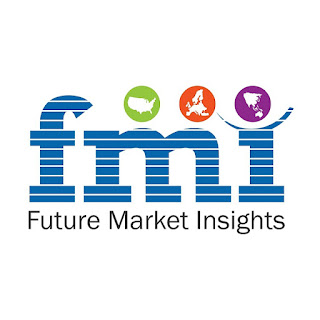Biometrics in Healthcare: A Decade of Advancements By 2023 to 2033
The global healthcare biometrics market is estimated to register a CAGR of 18.1% during the forecast period. The market is anticipated to secure a valuation of US$ 3.9 billion in 2023 and reach US$ 20.8 billion by 2033.
The healthcare biometrics market is witnessing unprecedented growth and transformation in recent years, driven by the increasing demand for secure and efficient patient identification and data management. Biometrics, which involves the use of unique physical or behavioral characteristics for identity verification, has emerged as a key technology in the healthcare sector.
Discover Our Expert Analysis with Our Sample Report! https://www.futuremarketinsights.com/reports/sample/rep-gb-14886
One of the primary drivers behind the growth of the healthcare biometrics market is the need for enhanced patient safety and data security. Traditional methods of patient identification, such as using ID cards or relying solely on personal information, are prone to errors and can lead to serious medical errors. Biometric authentication, which includes fingerprint scanning, facial recognition, and iris scanning, offers a more reliable and secure means of identifying patients accurately. This not only reduces the risk of medical errors but also safeguards patient data, ensuring compliance with strict healthcare privacy regulations such as HIPAA.
Moreover, the COVID-19 pandemic has accelerated the adoption of biometrics in healthcare. The need for contactless interactions and the rapid shift toward telemedicine have made biometric authentication solutions more crucial than ever. Patients can now access healthcare services remotely while ensuring their identity remains secure, thanks to biometric verification methods.
The healthcare biometrics market is not limited to patient identification alone. It also extends to workforce management within healthcare facilities. Biometric time and attendance systems can accurately record the working hours of healthcare professionals, helping to manage labor costs and ensure adequate staffing levels.
How are Healthcare Manufacturers Upsurging the Global Market?
Healthcare manufacturers contribute a key role in the upsurge of the global market in various aspects, including:
- Advancements in Biometric Technology:Healthcare manufacturers have invested in research and development to improve biometric technology's accuracy, reliability, and usability in healthcare settings. As biometric technology becomes more advanced and cost-effective, it becomes more feasible for healthcare providers to adopt and implement it for various applications.
- Integration with Healthcare Systems:Healthcare manufacturers have been working on integrating biometric solutions with existing healthcare systems, such as electronic health records (EHRs) and patient management systems. Seamless integration enables healthcare providers to use biometrics for patient identification and access control, enhancing patient data security and reducing the risk of medical identity theft.
- Enhanced Patient Identity Management:Patient misidentification has been a persistent challenge in the healthcare industry, leading to medical errors and patient safety concerns. Healthcare manufacturers have been developing biometric solutions to accurately and uniquely identify patients, reducing the chances of errors and improving patient identity management.
- Compliance with Regulations:Healthcare is heavily regulated, and patient data privacy and security are paramount. Biometric solutions can help healthcare organizations comply with data protection regulations by providing an additional layer of security beyond traditional authentication methods like passwords or PINs.
- Remote Patient Monitoring and Telemedicine:With the growth of telemedicine and remote patient monitoring, healthcare manufacturers have been exploring biometric solutions that can be integrated into telehealth platforms. Biometrics can help verify patient identities during virtual consultations, ensuring that only authorized individuals access sensitive medical information.
- Wearable Biometric Devices: Healthcare manufacturers have been developing wearable biometric devices to monitor patients' vital signs and health data in real time. These devices can be used for patient identification, authentication, and continuous health monitoring.
- Biometrics for Healthcare Staff:Biometric solutions are used for patient identification and healthcare staff access control. Healthcare manufacturers have created biometric solutions for staff authentication to ensure secure access to restricted areas and sensitive patient data.
Key Takeaways:
- The global healthcare biometrics market is estimated to register a CAGR of 18.1% with a valuation of US$ 20.8 billion by 2033.
- The United States is anticipated to dominate the global market by capturing a share of 36.6% by 2033.
- Germany is estimated to secure a share of 6.8% in the global market during the forecast period.
- With a share of 4.5%, Japan is significantly driving the global market.
- Australia is estimated to register a CAGR of 18.2% in the global market by 2033.
Key Player's Contribution to the Global Market
Key players play a vital role in the global market through innovations, new ideas, and technologies. These players invest much in research and development activities to improve their high-quality products. These players adopt several marketing strategies, such as collaborations, mergers, and partnerships, to uplift the global market.
NEC Corporation, Fujitsu Limited, 3M Cogent, Inc., Morpho, Imprivata, Inc., Suprema Inc., and others.
Recent Developments in the Global Market are:
In 2022, BiointelliSense announced its newly launched product named BioButton. It is a single charger and wearable device that works for 30 days and detects 20+ signs.
Segments:
By Technology:
- Single-factor Authentication
- Multi-factor Authentication
- Signature Recognition
- Voice Recognition
- Other Behavioral Recognition
- Multi-factor Recognition
- Biometrics with PIN
- Two-factor Biometrics
- Three-factor Biometrics
By Application:
- Patient Identification & Tracking
- Medical Record Security & Data Center Security
- Care Provider Authentication
- Home/Remote Patient Monitoring
- Pharmacy Dispensing
- Others
By End User:
- Hospitals & Clinics
- Healthcare Institutions
- Research & Clinical Laboratories
- Respiratory Distress Syndrome
By Region:
- North America
- Asia Pacific
- Europe
- Middle East & Africa
- Latin America

Comments
Post a Comment